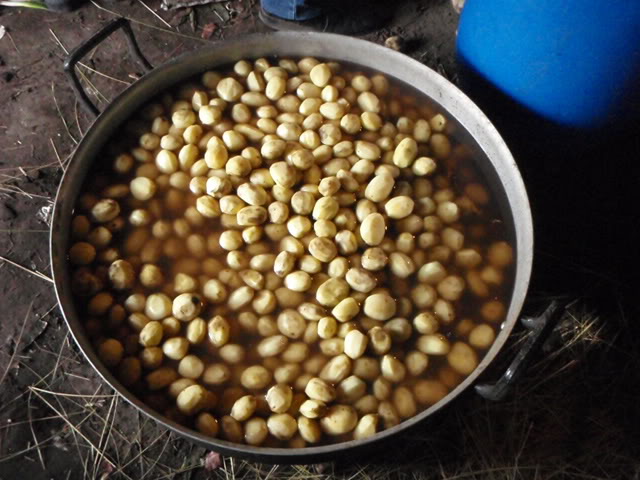
FRN Legume Integration
Lead Organization:
Research Community and Organizational Development Associates
Partner Organizations:
Singida Environmental Management Agents (SEMA), Sokoine University of Agriculture (SUA), TARI Selian, Ilonga and Naliendele, & NM-AIST
Community of Practice:
Duration:
12/2019—12/2022
Overview:
Farm families in Singida, Tanzania experience food insecurity and poor nutrition due to low productivity of their farming systems, which are predominantly cereal-based. Low rainfall and poor soils contribute to these problems. In its previous phase, the project set up a farmer research network (FRN) in ten villages, consisting of 20 farmer groups with 25 to 30 members in each. FRN members analyzed their farming challenges and identified options for addressing them. The groups prioritized intercropping cereals with legumes (especially pigeonpea) for improving soil health and productivity. The groups trialed preferred varieties of pigeonpea intercropped with maize over two growing seasons. Results showed that intercropping significantly increased overall productivity compared to cereals alone. The FRN members also tested groundnuts, lablab, and Bambara groundnuts. As many farmers in the area practice mixed farming involving both crops and livestock, the potential exists to use farmyard manure and crop residues to improve soils. In the proposed phase, the project team plans to investigate various legume intercropping arrangements for improved yields and soil health, as well as multiple options to blend and apply manure and crop residues. These activities through the FRN will enable farmers to choose options they prefer to try on their farms. The proposal also seeks to develop improved seed systems for legumes and a potential business model for the FRN. Finally, the project team will test various options for improving post-harvest handling of legumes and integrating legumes into local diets.
Grant Aims:
The proposed project will build on the previous phase to expand the range of available options to improve soil health, a major cause of low productivity and food insecurity in Singida. In addition to expanding cereal-legume cropping options, the team and the FRN will research options for increasing efficiency of crop-livestock interaction, through incorporation of manure as well as rainwater harvesting technologies. This will contribute to more diversified farming systems, increased resilience to environmental and market instability, reduced time burden for women, and broader diet options for farming households. The project supports strong NGO-community-scientist collaboration through FRN. This will provide a platform for co-creation and scaling of agroecological intensification options relevant to different smallholder farmer contexts. The efforts will support legume seed systems to ensure availability of seeds, dietary diversification, and potential business development opportunities for smallholders. The project explicitly addresses gender in enhancing food and nutritional security and family wellbeing.
Outputs and Outcomes:
Outputs
- Improved soil health and fertility, leading to increased grain and biomass yield;
- Improved farmer knowledge of principles and practices for soil health enhancement;
- Increased production and productivity of both crops and livestock;
- Development of different soil amendments using locally available materials adopted by Singida area farmers according to their contexts;
- Development and testing of recipes incorporating legumes by farmers;
- New knowledge by farmers of seed production and post-harvest management, as well as production of quality declared legume seeds (QDS);
- Support of one Masters student to graduate
- Participation of men, women, and youth in FRN activities
Outcomes
- Improved food and nutritional security;
- Wide adoption by farmers of agroecological approaches for improving farm productivity;
- Increased crop-livestock integration leading to improved livelihood and resilience;
- Increased access to quality seeds of the improved varieties of groundnuts, Bambara, lablab and pigeon peas;
- Development of market interactions between farmers and consumers;
- Increased livelihood options for households;
- Adoption and consumption of a diversified diet, incorporating legumes;
- Increased food and nutritional security of men, women, and youth at a household level